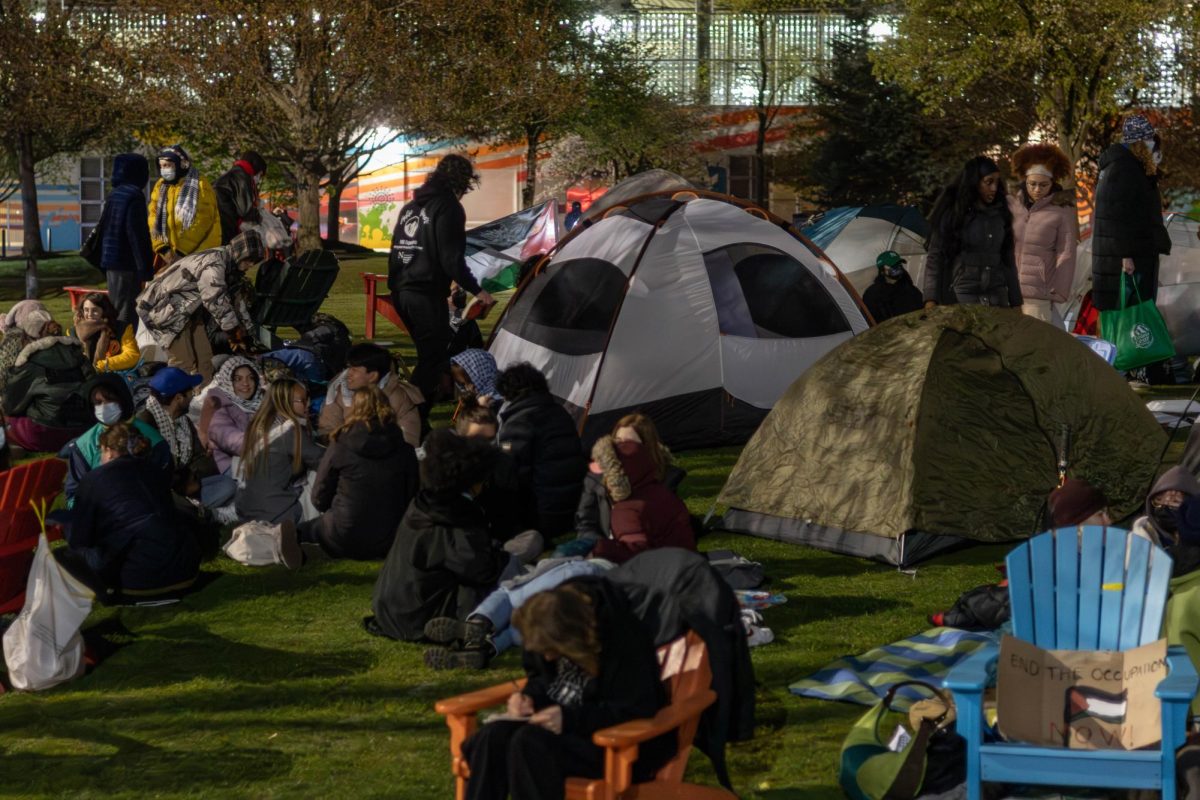Op-ed: Northeastern transfer students aren’t treated like other students
November 1, 2022
Transferring colleges is a stressful process as it is — students have to deal with transferring credits, making new friends and being in a new environment — but it is an adjustment that is only made harder with a lack of resources offered to newcomers at Northeastern, especially during the COVID-19 pandemic. Students that transfer to Northeastern do not receive the same experiences and opportunities as those who started as first-years do. Once the acceptance letter excitement wears off, transfers are hit with the harsh reality of finding housing, independently navigating campus and simply meeting friends.
I transferred to Northeastern in September 2020 as a second-year, coming from Fordham University in New York. I had applied to various schools in Boston, but ultimately chose Northeastern for the opportunities it would offer me. The co-op program is usually Northeastern’s biggest sell to incoming students, but many also choose the school for its unique city campus and world-class professors. However, only once I had accepted my offer did I find out that the university does not offer transfer students housing, something not widely advertised on admissions resource pages.
Acceptance letters in 2020 were sent out in mid-May, leaving approximately three months to find housing for the upcoming school year. Since the world was enduring a pandemic, touring properties was exceptionally difficult. Many transfers, like myself, found ourselves signing a lease at LightView. The apartment complex exclusively leases to Northeastern and Boston University students. While some were lucky enough to secure a spot close to campus, leases move quickly at LightView, leaving many to find alternative housing options.
With classes, meetings and events being held online, 2020 transfers faced a unique struggle trying to acclimate themselves to campus. A virtual campus tour was just one of the challenges I faced that posed future implications for transfer students. As a fourth-year student in my third year at Northeastern, I sometimes still find myself having difficulty finding where my classes are at the beginning of each semester. Additionally, the online format made it more challenging to meet new transfer students or other students in general. Any of the friends I made that shared the experience of being a transfer student were from reaching out on my own and striking up conversations in Lightview’s laundry facilities. It was only once I virtually participated in sorority recruitment that my network of friends and peers expanded.
The mental health resources at Northeastern aren’t widely advertised and could have potentially been useful to help ease the stress of the transition to a new school. My transfer process to Northeastern was a rather isolating experience and a transfer counselor or similar resource would have helped in having someone to address the challenges I faced. Additionally, if I had been introduced to other transfer students through a more formal orientation process, I would have had others to speak to who shared a similar experience to mine.
Coming from another city school and having been raised in Massachusetts, I was fairly familiar with the city of Boston. However, I know many transfer students that had never visited Boston before and independently had to learn to navigate living in a city. At Suffolk University, there is a three-credit class for incoming transfers and first-years that helps students explore Boston by visiting historical sights, taking the Massachusetts Bay Transportation Authority system and getting to know other transfer students. I think a program like this would be extremely beneficial to Northeastern’s transfer students because without having a connection on campus and familiarity with the city, the transition process would be even harder. Personally, without sorority recruitment, I feel that I would not have been able to make connections and branch out on campus on a deeper level. While this process was virtual, it led me to having meaningful conversations with people I otherwise would not have met.
Lastly, I would like to touch on the emotional side of the transition to Northeastern. As previously noted, I transferred to the school during the pandemic. Classes were online, clubs met via Zoom and there was not much social interaction overall for new and returning students. This made the initial weeks of being a transfer lonely and fairly isolating. Had there been more Welcome Week-style events dedicated to transfer students, then I would have had the opportunity to at least talk to others, even if it was on a screen from the comfort of my apartments.
I believe if more transfer students spoke to Northeastern’s administrative teams about their experiences, we may be able to create a change for future transfer students. Being vocal about our shared experience, especially those of us who transferred in the fall of 2020, could create new opportunities and resources that we did not have but others could.
Paige Keeler is a fourth-year communication studies major. She can be reached at [email protected].


















